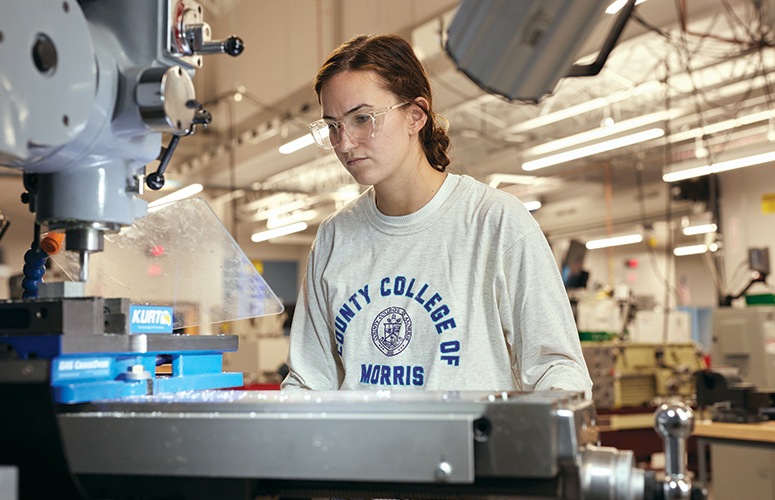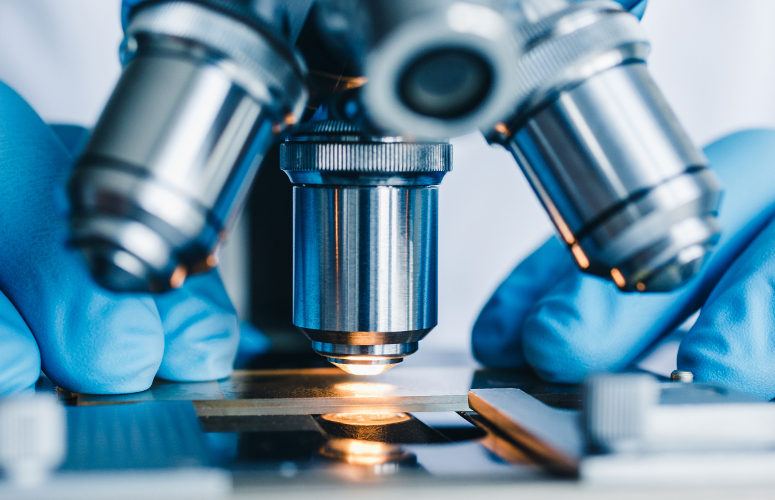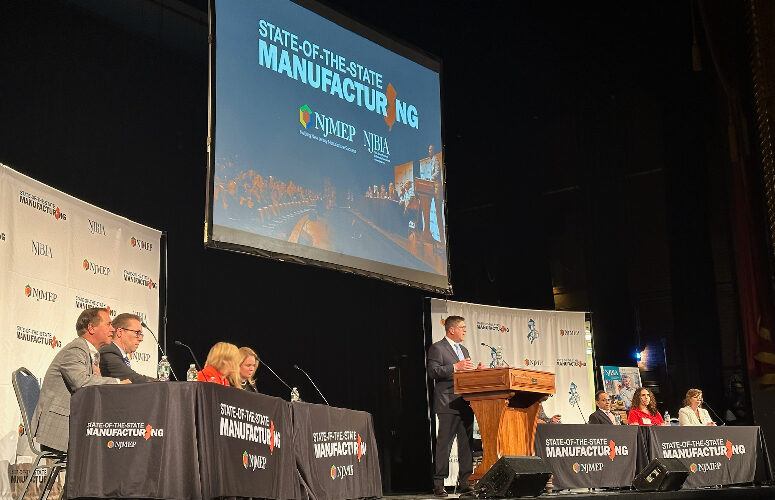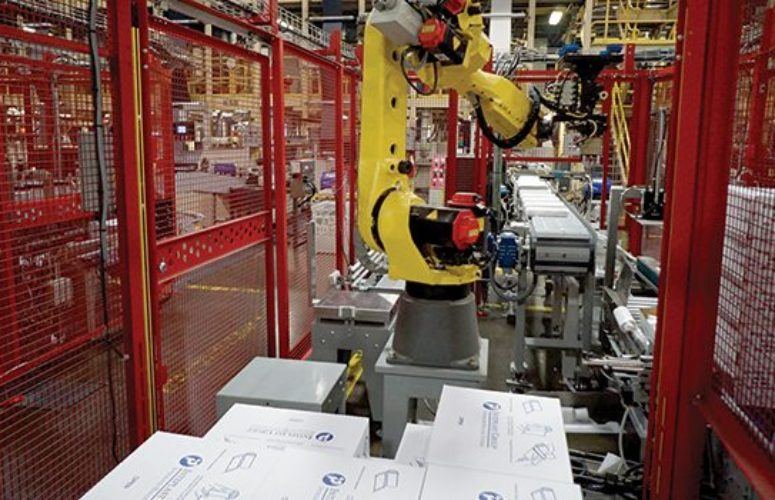
NJ Manufacturing Advocacy Matters
The state’s manufacturing industry faces both triumphs and challenges, as trade groups and others are helping to create clearer paths toward success.
By George N. Saliba, Contributing Writer On Oct 12, 2023New Jersey manufacturing advocates are striving to bolster an industry that has, on the one hand, shrunken overall from 530,000 jobs in 1990 to 324,500 today in part due to the high cost of doing business and stringent state regulations. On the other hand, it has been regrowing in recent years partly due to reshoring trends.
Although manufacturing costs remain especially high in the Garden State, New Jersey Manufacturing Extension Program (NJMEP) CEO Peter Connolly estimates that 85% to 90% of the state’s 11,363 manufacturers want to remain here. He cites companies that have moved to New Jersey from locales ranging from New York and the Midwest that want to avail themselves of the state’s opportunities. Those advantages have long been seen as access to the Port of NY/NJ (the largest port on the East Coast) and Manhattan’s global markets, as well as the state’s educated workforce and New Jersey’s extraordinarily complex road-, rail- and air-shipping networks. NJMEP – in tandem with other entities – is ever-aiming to remove obstacles to manufacturers’ success in what has become an increasingly complex landscape.
Labor Availability
One such obstacle is a shortage of workers in the labor pipeline. A 2021 Deloitte/The Manufacturing Institute Manufacturing Talent study revealed that US manufacturing is expected to have 2.1 million unfilled jobs by 2030, and the Garden State is no exception to this trend.
Connolly notes that New Jersey’s aging manufacturing workers are not only retiring at rapid rates, but that prospective workers either may not have the appropriate skills or may not be interested in pursuing manufacturing careers.
In response, NJMEP is collaborating with the New Jersey Economic Development Authority (NJEDA) to foster interest in manufacturing careers by visiting high schools in all 21 counties. Citing steep college dropout rates as well as $65,000 average starting salaries for certified logistic technicians and certified production technicians, Connolly explains: “Some kids don’t need to go to college.”
For Patrick Enright, senior vice president of academic affairs, workforce development, at the County College of Morris (CCM) in Randolph, the equation is arguably more nuanced; a variety of CCM educational opportunities can lead to both manufacturing jobs and/or college degrees.
Case in point: CCM offers an eight-week Apprenticeship in Manufacturing “bootcamp” where students are afterward hired by local firms (the program has a 92%-93% employment success rate), and then students hopefully enter more specialized apprenticeships where they attend training at CCM on alternating Fridays.
The bootcamp program speaks to corporate needs. “Some companies will tell you: ‘I can find plenty of PhDs or traditional engineers, [but] I can’t find anybody to run the machines,” Enright explains. CCM students can alternatively engage in two-year electronics or mechanical engineering technology associate’s degree programs with the option of then transferring to four-year colleges and universities.
There is additional CCM news in the training and labor sphere: NJMEP and CCM this May received a $5 million United States Department of Defense (DOD) grant “to educate and train veterans and their families for careers in manufacturing at no cost” over the next five years, with training focusing on manufacturing skills such as CNC and welding, as well as certifications in safety and production processes.
Advanced Manufacturing and Engineering Center
Manufacturing education is facilitated by CCM’s new state-of-the-art Advanced Manufacturing and Engineering Center, which is not only replete with lathes, CNC machines and welding tools, but also houses automation equipment and 3-D printers. Opened in 2020, the 31,500-square-foot building has been an educational centerpiece not only for Morris County, but for the state overall.
Manufacturing Counts Campaign
Yet, Garden State manufacturers face more than just labor challenges. To address them, the New Jersey Business & Industry Association (NJBIA) and NJMEP have collaborated for a Manufacturing Counts partnership that has seen “both organizations embark on an engagement campaign of New Jersey manufacturers for the purposes of building a stronger grassroots network, utilizing government affairs events and other networking events from both groups.” This can include sharing peer-to-peer practices as well as engaging in surveying and research “to bring a deeper understanding of the needs and concerns of manufacturers.”
Separately, NJBIA President and CEO Michele Siekerka was named to The National Association of Manufacturers board of directors in March, where she is bolstering NAM’s leadership in “policy advocacy, legal action, workforce solutions, operational excellence and news and insights,” all while advancing a manufacturing competitiveness agenda.
Speaking broadly about NJBIA’s manufacturing-related advocacy efforts is Ray Cantor, deputy chief government affairs officer at the association: “We’re out there every day advocating for fairer tax policies and better environmental policies to take advantage of and help grow our manufacturing base. It’s a priority for us.”
Cantor is especially concerned about a new statewide Environmental Justice Law (EJ), which became enforceable on April 17 and that is aimed at protecting underserved communities. It requires the New Jersey Department of Environmental Protection (DEP) to – in DEP’s words – “evaluate environmental and public health impacts of certain facilities on overburdened communities (OBCs) when reviewing certain applications.”
Cantor says, “Everything in [EJ] is phrased in terms of cleaning things up, but these [manufacturing and other] facilities already meet New Jersey’s existing, very stringent environmental standards for air and water, etc. … There are [only] perceptions of a problem, and [EJ] is addressing those perceptions by onerous additional requirements that no one else has to comply with.”
Cantor foresees drastic impacts resulting from EJ, specifically stating: “We will see no new [manufacturing] facilities coming in [to New Jersey], and I’ll be surprised if we see any extensive manufacturing expansions.”
Supply Chain Improvement
Manufacturing advocates are meanwhile addressing unrelated challenges, including – but not limited to – supply chain issues initially spawned during the 2020 coronavirus pandemic.
NJMEP’s Connolly notes that partly in response to manufacturers not knowing who their second- and third-tier suppliers were during the pandemic, approximately 24 different Manufacturing Extension Programs throughout the United States created searchable supply chain databases from which manufacturers can source; the CONNEX New Jersey supply chain database launched May 15.
Connolly adds, “The geopolitical environment is uncertain at best. We’re seeing more and more manufacturers engage … to figure out how they can build resiliency.”
Regardless of the scenario, state manufacturing advocates stand ready to assist manufacturers in a variety of ways.
To access more business news, visit NJB News Now.
Related Articles:





